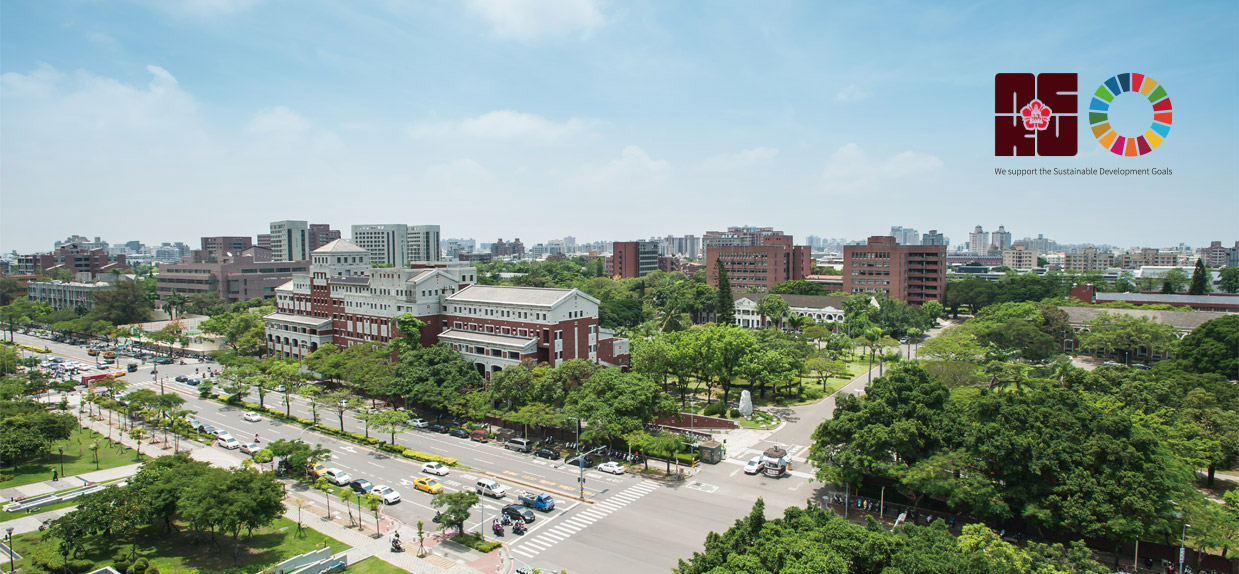NCKU's action plan to reducing plastic waste
National Cheng Kung University (NCKU) is building a sustainable campus by emphasizing waste reduction at the source and correct recycling practices. In recent years, improper disposal of food scraps and household refuse into recycling bins has complicated waste processing. In response, the university encourages simple eco-friendly habits: bringing reusable cups and utensils, rinsing food containers before placing them in recycling bins, and ensuring specialized wastes from laboratories or construction sites are handled by approved contractors. Clear labels, categorized bins, and coordination with campus collection services are used to guide the separation of paper, plastics, PET bottles, metal cans, glass containers, and hazardous waste such as batteries and fluorescent tubes. These measures seek both to improve recycling efficiency and to cultivate a greener campus culture.
NCKU also integrates sustainability into teaching and design. Since the first semester of 2019, the Department of Architecture has banned the use of polystyrene for student models, turning studio courses into a venue for practicing circular-economy principles. In the Department of Industrial Design, Associate Professor Chiu Tseng-Ping and students Ming-Shan Chung and Hsin-Ying Chou won a Golden Pin Concept Design Special Award for an innovative fruit gift box. Noting that conventional gift boxes rely on plastic foam and other disposable materials, they developed an outer shell made from recycled pulp and surplus fruit peels, with a fully paper-based suspended cushioning structure that reimagines gift-giving without waste.
Research by Assistant Professor Hsin-Tien Lin’s team in the Department of Environmental Engineering further shows that reducing plastic packaging for supermarket produce can significantly cut waste. Lin argues that “sustainability is a way of life”: when individuals make everyday choices such as refusing unnecessary plastic, they help steer society toward a more environmentally responsible future.
- NCKU strengthens advocacy for source reduction and recycling efforts.
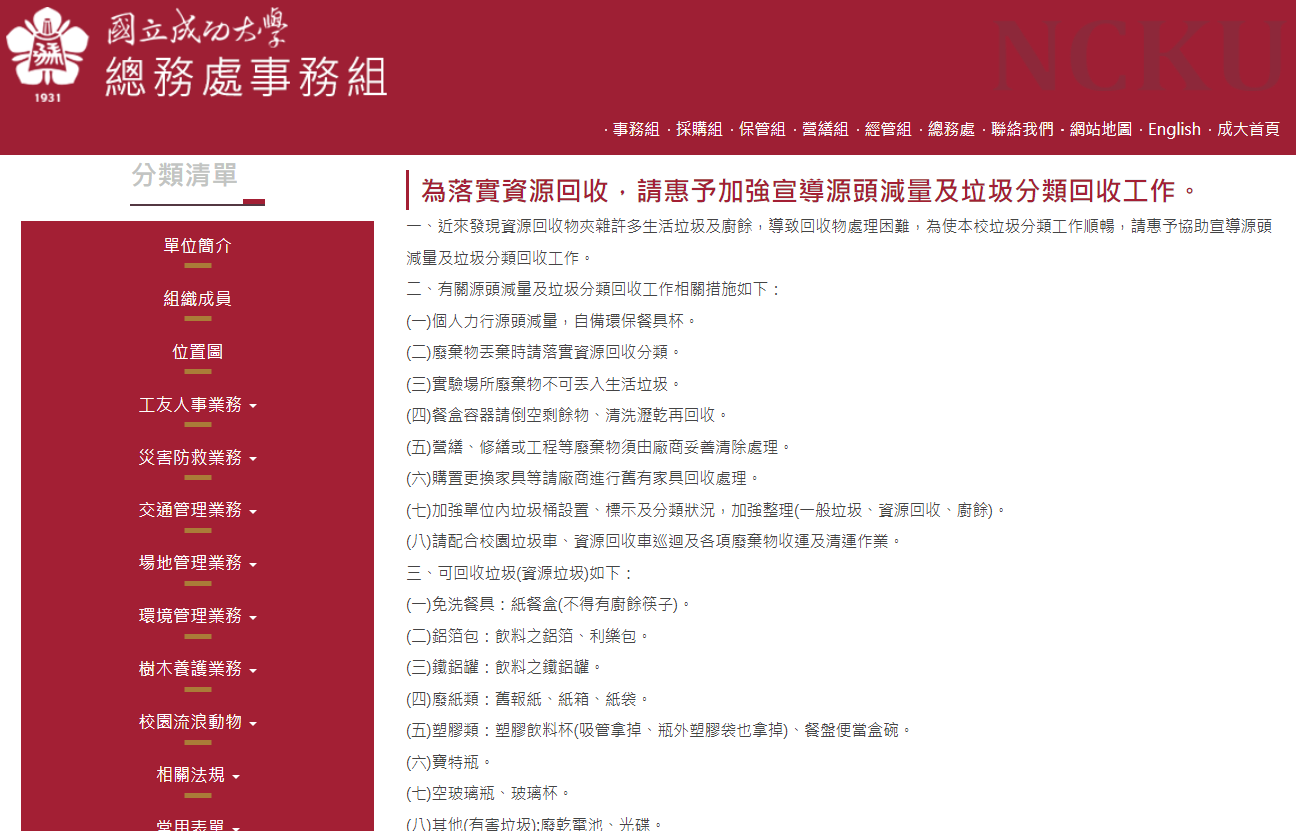 NCKU promotes a sustainable campus by reinforcing “waste reduction at the source” and proper recycling. Recently, improper disposal of food waste and household trash in recycling bins has created difficulties in processing. The university urges everyone to adopt eco-friendly habits, such as bringing reusable cups and utensils, rinsing food containers before recycling, and ensuring laboratory or construction waste is handled properly by contractors. Clear labeling and categorized bins are emphasized, alongside cooperation with campus garbage and recycling collection. Recyclables include paper, plastics, PET bottles, aluminum and tin cans, glass containers, as well as hazardous items like batteries and fluorescent tubes. These measures aim to improve recycling efficiency and foster a greener campus environment.
NCKU promotes a sustainable campus by reinforcing “waste reduction at the source” and proper recycling. Recently, improper disposal of food waste and household trash in recycling bins has created difficulties in processing. The university urges everyone to adopt eco-friendly habits, such as bringing reusable cups and utensils, rinsing food containers before recycling, and ensuring laboratory or construction waste is handled properly by contractors. Clear labeling and categorized bins are emphasized, alongside cooperation with campus garbage and recycling collection. Recyclables include paper, plastics, PET bottles, aluminum and tin cans, glass containers, as well as hazardous items like batteries and fluorescent tubes. These measures aim to improve recycling efficiency and foster a greener campus environment.
- Ming-Shan Chung and Hsin-Ying Chou from the Department of Industrial Design at National Cheng Kung University received the Golden Pin Concept Design Award – Special Award, creating an outer box made from recycled pulp and surplus fruit peels.
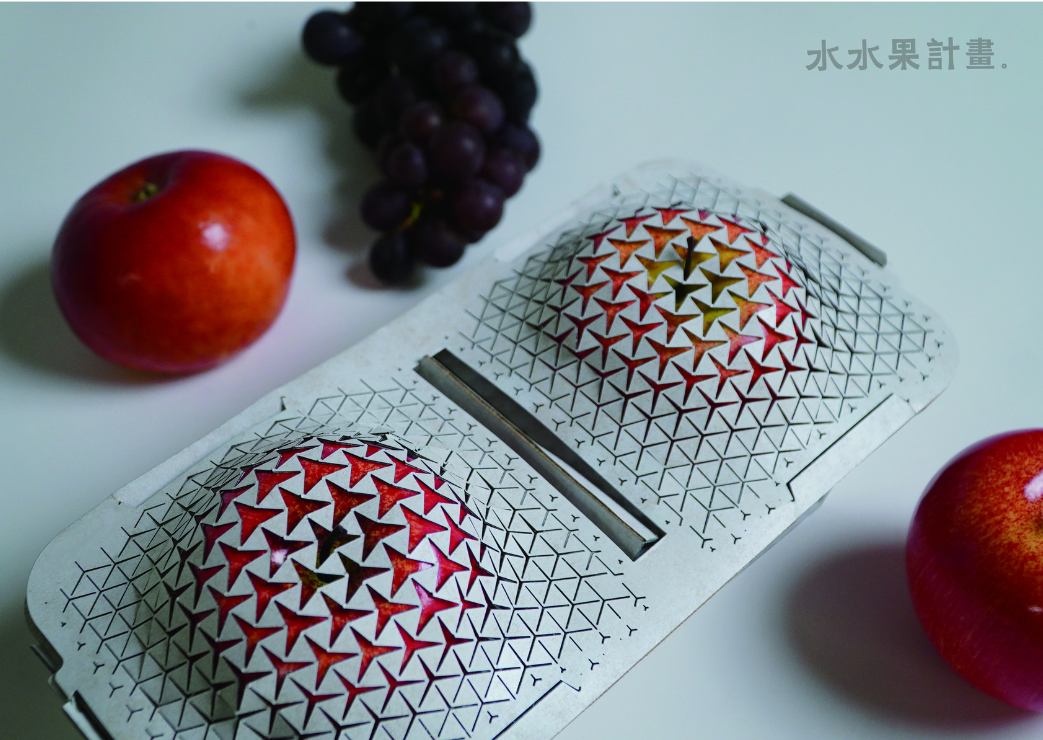
Associate Professor Chiu Tseng-Ping from the Department of Industrial Design at National Cheng Kung University, together with students Ming-Shan Chung and Hsin-Ying Chou, received a Golden Pin Concept Design Award – Special Award. They pointed out that conventional fruit gift boxes often contain plastic foam and other waste just to maintain the fruits’ appearance. Must gift-giving always come with waste? In response, they created an outer box made from recycled pulp and surplus fruit peels. With a fully paper-based suspended cushioning design, their work offers a brand-new vision for sustainable gifting.
- Starting from Campus: NCKU Architecture Department Pioneers the Ban of Styrofoam for Models in a Move Toward Eco-Friendliness.
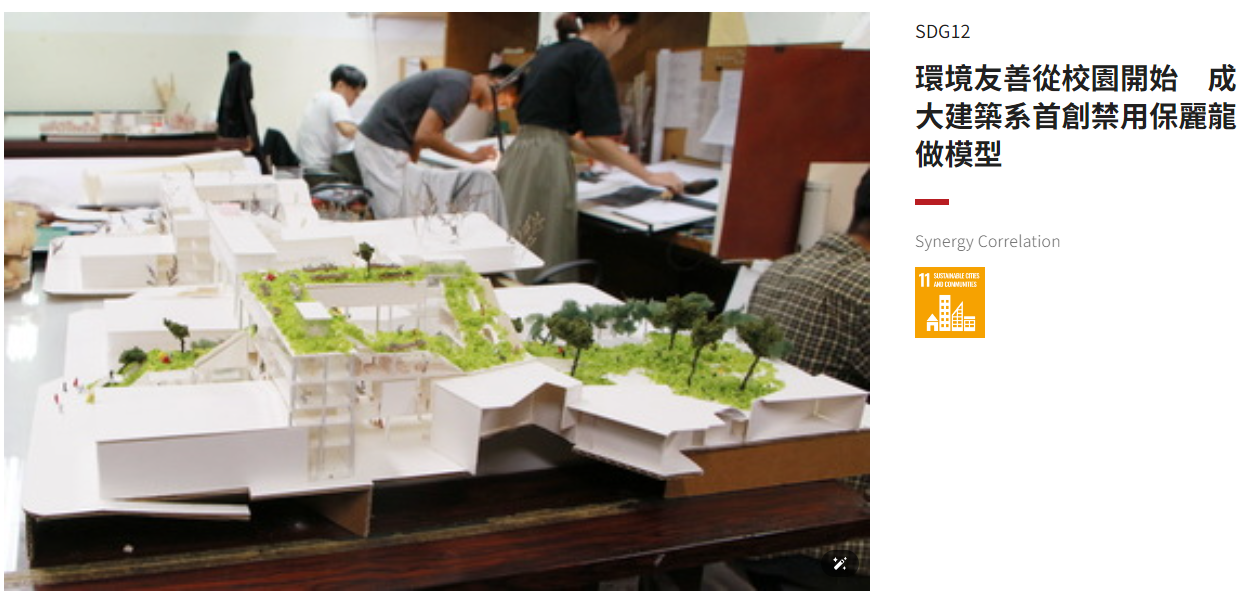
To promote waste reduction, starting from the first semester of the 2019 academic year, the Department of Architecture at NCKU prohibited students from using polystyrene materials to make models. This action aligns with environmental protection initiatives and the concept of a circular economy, demonstrating that environmental friendliness begins in the classroom.
- The announcement of reducing plastic waste, following the government’s standard.
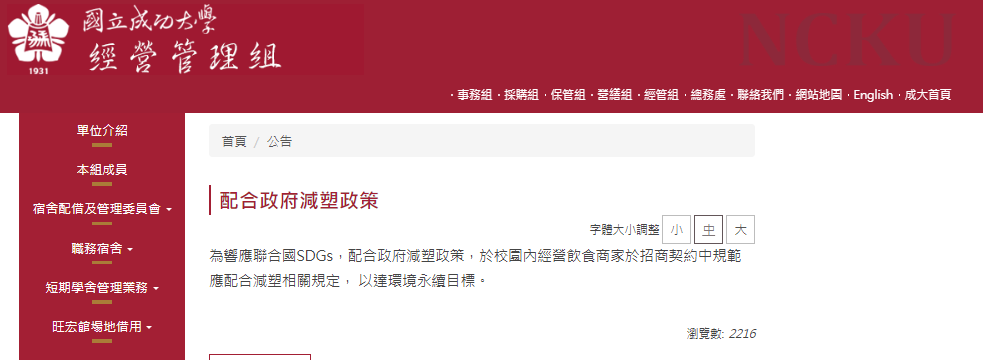 To reduce the use of plastic products and work towards a sustainable environment, NCKU has been actively promoting waste reduction at the source and waste separation and recycling.
To reduce the use of plastic products and work towards a sustainable environment, NCKU has been actively promoting waste reduction at the source and waste separation and recycling.

